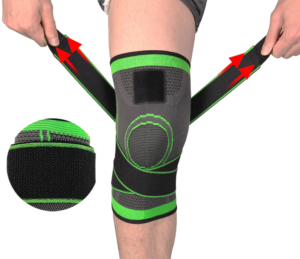
Are you experiencing foot and knee pain? Have you already been diagnosed with plantar fasciitis and are now wondering if it could be the cause of your knee discomfort? Or perhaps you’re concerned about the potential long-term effects of untreated plantar fasciitis leading to other musculoskeletal problems like knee pain? You’re not alone in your curiosity. Many individuals are exploring the connection between plantar fasciitis and knee pain, driven by personal health inquiries, diagnostic curiosities, and a desire for holistic health understanding. In this article, we will delve into the topic to provide you with a better understanding of whether plantar fasciitis can indeed cause knee pain.

Exploring the Connection Between Plantar Fasciitis and Knee Pain
Personal Health Inquiry
Are you experiencing both foot and knee pain? Have you been diagnosed with plantar fasciitis and are curious to know if it could be the underlying cause of your knee discomfort? Many individuals who struggle with plantar fasciitis may wonder if this condition can lead to other musculoskeletal problems, such as knee pain. Understanding the long-term implications of plantar fasciitis and its potential connection to knee pain can be crucial in managing your overall health.
Symptom Analysis
When dealing with foot pain from plantar fasciitis, it is important to pay attention to any other symptoms you might be experiencing. If you are also experiencing knee pain, it could be a sign that your plantar fasciitis is impacting other parts of your body. The foot and knee are closely connected, and a problem in one area can cause compensatory changes and discomfort in another area. By analyzing your symptoms, you can gain a better understanding of the potential link between plantar fasciitis and knee pain.
Disease Progression Concern
If left untreated, plantar fasciitis can aggravate and potentially have a cascading effect on other areas of the body. This concern arises from the desire to gain insights into the long-term implications of the condition. It is reasonable to have a worry about whether plantar fasciitis could contribute to the development of knee pain, as the discomfort in your foot might lead to altered biomechanics, which in turn affect the knee joint. By addressing and managing your plantar fasciitis early, you can potentially mitigate the risk of developing knee pain or other musculoskeletal issues.
Personal Experience Sharing
Engaging with others who have experienced plantar fasciitis can provide valuable insights. Participating in online forums or communities where individuals openly share their personal experiences with this condition may shed light on the potential connection between plantar fasciitis and knee pain. It is not uncommon for individuals to mention knee pain alongside their struggles with plantar fasciitis. Sharing and learning from personal experiences can help you further explore and understand the relationship between these two conditions.
Diagnostic Curiosity
Body Mechanics Exploration
Are you curious about how different parts of your body are interconnected? Exploring the concept that a problem in one area, such as the foot, can lead to issues in another area, like the knee, can be a fascinating endeavor. The human body is a complex system of interconnected structures, and imbalances or strains in one part can create compensatory changes that affect other areas. By delving into the intricate mechanics of the body, you can gain a deeper understanding of how plantar fasciitis may potentially contribute to knee pain.
Differential Diagnosis
In cases where individuals are experiencing knee pain without a direct knee injury, it becomes important to consider various potential causes. This includes exploring conditions that originate elsewhere but manifest as knee pain. Plantar fasciitis, although primarily affecting the foot, can lead to altered biomechanics and posture, potentially exerting stress on the knee joint. Understanding this differential diagnosis can be helpful in determining the root cause of your knee pain and pursuing appropriate treatment options.
Holistic Health Understanding
Adopting a holistic approach to health and well-being involves recognizing the interconnections between different bodily systems and structures. When it comes to plantar fasciitis and knee pain, developing a holistic understanding is key in comprehending their relationship. By considering how various factors, such as body mechanics, alignment, and posture, influence and impact each other, you can obtain a comprehensive perspective on the potential connection between these two conditions. This holistic approach may guide you in making informed decisions about your health and seeking appropriate treatments.
In conclusion, it is essential to explore the connection between plantar fasciitis and knee pain to gain a better understanding of your symptoms and potential treatment options. By analyzing your symptoms, considering the progression of the disease, sharing personal experiences, and exploring body mechanics and holistic health principles, you can embark on a journey of self-discovery that may provide insights into the relationship between plantar fasciitis and knee pain. Remember, seeking the guidance of healthcare professionals is crucial in managing your condition effectively and ensuring long-term health and well-being. So, if you are experiencing both foot and knee pain, consult a healthcare provider to receive personalized advice and appropriate treatment for your specific needs.





